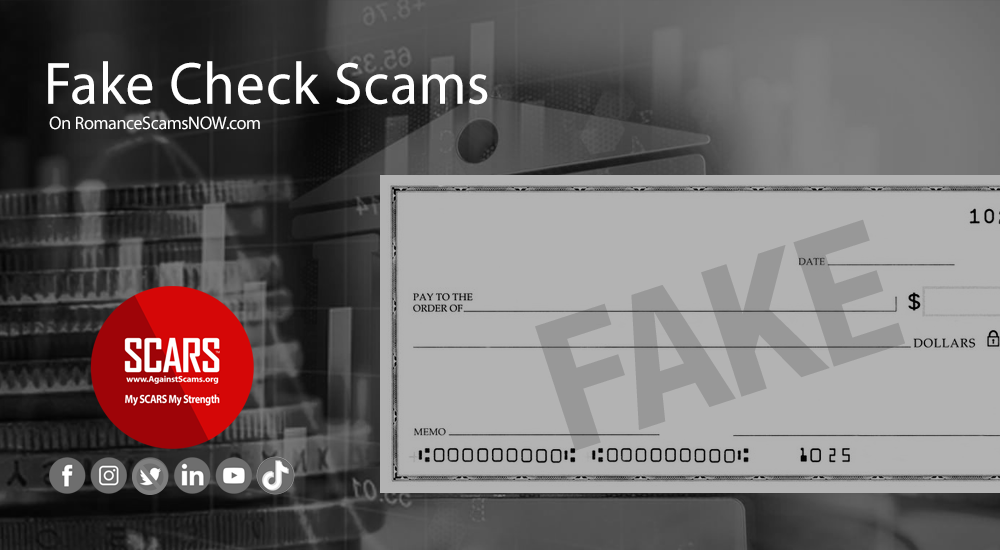The Problem With Fake Checks & Job Scams!
A BBB Insight
Presented by SCARS
How Big Of A Problem Are Fake Checks?
Two Things Everyone Needs To Know About Checks:
- Having funds credited to a bank account does not mean the check is valid. Federal banking rules require that when someone deposits a check into an account, the bank must make the funds available right away – within a day or two. But when the check works its way back to the bank that supposedly issued the check and it is discovered to be counterfeit, the bank has the right to recover the money from the account holder.
- Cashier’s checks and postal money orders can be forged. A cashier’s check is guaranteed by a bank, drawn on the bank’s own funds and signed by a cashier.
-
- Cashier’s checks are treated as guaranteed funds because the bank, rather than the individual account holder, is responsible for paying the amount of the check.
- Cashier’s checks are commonly required for real estate and brokerage transactions. If a person deposits a cashier’s check, the person’s bank must credit the account by the next day. The same holds true for postal money orders. But they can be counterfeit.
Common Fraud That Employs Fake Checks:
The majority of complaints about fake checks involve some sort of employment. But for fraudsters, the possibilities are almost endless, so the frauds covered below are far from exclusive.
Again, the central message is the same – just having the money credited to a checking account does not mean the check is good, and you should never have to pay in advance to get a job.
Job Scams Involving Fake Checks
While 36% of those responding to a BBB survey said that they had encountered fake checks scams, the actual number is likely higher. Fake checks are a growing fraud problem with a variety of different job scams employing them.
Bogus check fraud was the subject of a 2018 BBB study. Most fake checks are business checks, often stolen by scammers from mail and then altered by Photoshop or similar programs. They usually look professional, and victims believe they are real. Scammers may change the phone number of the business on the check so that it is answered by another scammer if someone calls to see if it is legitimate.
The FTC also gave fake checks a hard look in a report issued in February 2020, which found that 51% of those reporting a fake check were victims of a job scam. The FTC also similarly reported a big increase in complaints involving fake checks, finding that they increased 65% between 2015 and 2019.
Since then, the number of reports of fake checks has increased substantially, even though the overall use of checks in general use has gone down. The banking system updates fake check fraud data every two years. As the previous BBB study on fake checks noted, in 2016 fake checks cost the banks $789 million that they could not recoup from customers, up 25% from two years before. The newest data, released in January 2020 but providing results for 2018, shows that over two years these losses went up to $1.3 billion, a 40% increase.
Banks are obviously trying hard to detect and prevent fake checks from entering their systems. They report that they were effectively able to stop 91% of these checks, preventing $13.5 billion in annual potential losses. Despite these efforts, it is clear that fake check fraud continues to be a growing problem.
Summary
Never remove money from your account after you deposit a Cashier’s Check until your bank tells you it has cleared. Even if they credit your account, it does not mean it has cleared – speak with your bank and confirm it has.
Any job that asks you to deposit cashier’s checks IS A SCAM! Period!
Our thanks to the Better Business Bureau for portions of the above.




Leave A Comment